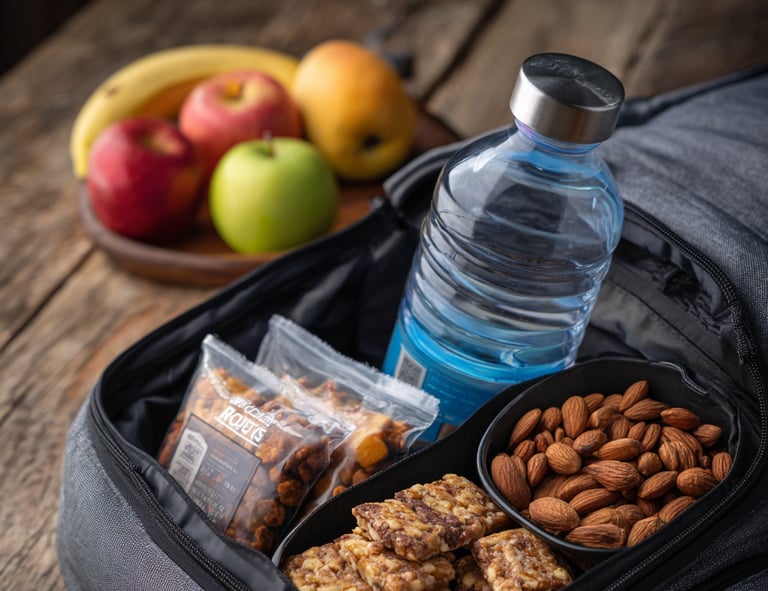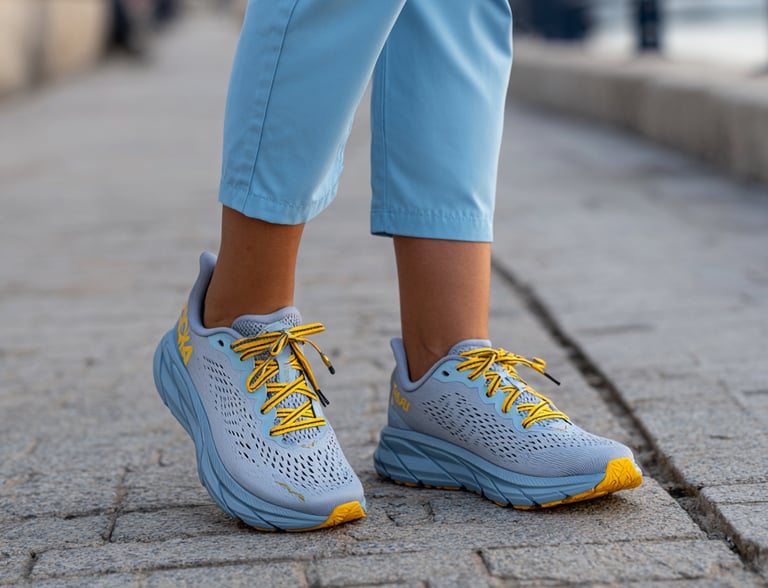How I Manage Lupus While Working as a Nurse
Living with lupus while working as a nurse isn’t easy—especially in travel nursing. Here’s how I balance demanding schedules, protect my health, and find joy on the road while living in my RV.
TRAVEL NURSING & CAREER
Velvet Larrabee
9/8/20257 min read


Living with lupus while working as a nurse—let alone as a travel nurse—isn’t easy. In fact, it’s one of the biggest challenges I've faced in my life. Nursing is demanding enough on its own: long shifts, emotional stress, physical exhaustion, and constantly changing environments. Add lupus into the mix, and some days it feels like my body is at war with my career.
And yet, I wouldn’t trade this path. I’ve been working as a travel nurse for several years now, living in my 42-foot fifth-wheel camper and taking contracts across the country. It hasn’t always been smooth sailing, but I’ve learned how to balance the demands of nursing with the realities of lupus—and how to create a life that feels meaningful, adventurous, and sustainable.
If you’re a nurse with lupus (or another chronic illness), and you’re considering travel nursing—or you’re already working and struggling to find balance—this post is for you. I’ll share the adjustments I’ve had to make, the lessons I’ve learned, and the simple, practical strategies that help me keep going.
The Reality of Nursing With Lupus
Let’s start with the truth: lupus doesn’t play fair. There are weeks when I feel strong, capable, and able to handle just about anything. And then there are weeks when I can barely get through a shift without collapsing into bed afterward.
Travel nursing adds another layer. New hospitals, new routines, new charting systems, and sometimes not-so-welcoming staff—it’s a lot for any nurse. For someone with lupus, it can feel overwhelming.
I’ve had stretches where all I could manage was:
Work. Sleep. Repeat.
No exploring, no hobbies, no socializing—just conserving enough energy to show up for my patients.


But then there are the better stretches. Times when my body cooperates, my schedule is reasonable, and I’m able to take advantage of being in new places. I’ve explored quirky downtowns, hiked gentle trails, sampled local foods, and enjoyed the small adventures that make travel nursing so unique.
The balance is always shifting. That’s why the key to managing lupus as a nurse isn’t about “fixing it” but about building strategies that give you the best chance to thrive.
1. Listen to Your Body—Even When It’s Inconvenient
Nursing culture often rewards pushing through exhaustion and working until you drop. But with lupus, ignoring your body’s signals comes with a price. I’ve learned (the hard way) that rest isn’t optional.
If my joints start aching or fatigue hits like a wave, I no longer push through with the mindset of “just one more shift.” I stop, assess, and rest. Because if I don’t, the crash is always worse.
Listening to your body can feel frustrating—you want to do it all. But learning when to say “enough” is the difference between a short recovery and a full-blown flare.
2. Hydration and Nutrition: The Unsexy Superpowers
It sounds simple, but drinking enough water and eating balanced meals has been one of the most powerful tools in my lupus management toolkit.
Water: I carry a refillable water bottle everywhere. Dehydration makes fatigue and joint pain worse.
Food: It’s tempting to indulge in local delicacies when you’re on assignment (hello, Southern barbecue or New England lobster rolls), but too many heavy meals wreak havoc on my body. I try to cook in my RV kitchen most days—simple, whole foods that don’t drain my energy.
Snacks: Having lupus means you can’t risk crashing mid-shift. I keep nuts, fruit, or protein bars in my work bag.


I’ve learned that eating right isn’t about restriction—it’s about giving my body what it needs to keep showing up.
3. Rest: Not Just Sleep, but Real Recovery
Sleep has become sacred to me. With lupus, even a single missed night can trigger a spiral of fatigue and pain.
Here’s what helps me:
Consistent sleep schedule: No flip-flopping between nights and days. My contracts now specify one or the other.
No double shifts: I can’t do 16-hour shifts. Period. My body doesn’t recover in time, and the fallout affects my patients.
RV comfort: One of the best parts of living in my camper is having my own bed no matter where I go. That consistency helps my body rest.


Rest also means downtime. Sometimes that’s a nap. Other times it’s sitting outside my RV with a cup of tea, letting myself just be.
4. Medications: Don’t Skip, Don’t Forget
When you’re moving from place to place, it’s easy to let meds slip through the cracks—especially if pharmacies change. But skipping doses is non-negotiable with lupus.
I’ve created a system:
Always travel with a buffer supply.
Use a pill organizer so I know immediately if I’ve missed a dose.
Set phone alarms when my routine is disrupted.
It may sound basic, but this simple consistency keeps me functioning.
5. Protecting Joints: Shoes and Smarts
Supportive shoes are worth their weight in gold. As nurses, we spend most of our shifts on our feet, and joint pain is one of lupus’s cruelest symptoms.
I invest in high-quality, supportive footwear. No shortcuts.
Compression socks help too—especially during long shifts.
I’m careful with lifting. If a task risks injury or strain, I ask for help.
It’s not about weakness. It’s about protecting my body so I can keep nursing long-term.


6. Being Honest About Schedule Needs
Early in my travel nursing career, I made the mistake of agreeing to contracts that pushed me too far. Rotating shifts, 16-hour doubles, mandatory overtime—my body simply couldn’t keep up.
Now, I’m upfront during contract negotiations:
No 16-hour shifts.
Consistent shifts only (days OR nights).
Reasonable scheduling to allow recovery.
Advocating for yourself feels intimidating at first. But here’s the truth: if you don’t, no one else will. And setting boundaries isn’t just about your health—it’s about patient safety.
7. The RV Advantage: Home Wherever I Go
Living in my RV has been a lifesaver with lupus. Here’s why:
Consistency: No matter where I’m working, my home stays the same. My bed, my kitchen, my bathroom—all familiar and comfortable.
Meals: Cooking in my own kitchen makes healthy eating easy.
Pets & comfort: My cat travels with me, and that companionship keeps my stress lower.
Flexibility: I can choose campgrounds that are quiet and restful, instead of noisy apartment complexes.
Of course, RV life isn’t for everyone (I’ve written about the pros and cons in detail), but for me, it’s added stability to an unpredictable lifestyle.
8. Finding Balance Outside of Work
When lupus allows, I love exploring new cities. Museums, local shops, gentle hikes, or just walking around downtown—it fills my soul.
But I’ve learned not to pressure myself. Some assignments, all I can do is rest. Others, I have the energy to explore. Both are okay. Both are valid.
Balance is about listening, not forcing.


9. Mental Health: The Hidden Battle
Chronic illness takes a toll on mental health. It’s easy to feel discouraged when your body keeps betraying you, especially in a demanding career like nursing.
What helps me:
Journaling, even a few lines a day.
Talking honestly with friends and family about how I feel.
Online lupus and travel nurse support groups—knowing I’m not alone.
Mental health care isn’t indulgent. It’s part of the plan.
10. Why I Keep Going
Sometimes people ask me, “Why do you keep doing travel nursing with lupus? Wouldn’t it be easier to stay home?”
Yes, it would be easier. But here’s the thing: I love nursing. I love traveling. I love living a life that feels like mine.
Lupus may slow me down, but it doesn’t get to take away everything I value. Instead, it forces me to be intentional: to rest when I need to, to advocate for myself, and to find joy in both the small and big moments.
Final Thoughts
If you’re a nurse with lupus considering travel nursing, know this: it’s possible. It’s not always easy, and it requires adjustments, but it is possible.
The key is to:
Listen to your body.
Prioritize rest, hydration, and nutrition.
Advocate for fair schedules.
Protect your joints.
Find housing that supports your health (for me, that’s RV life).
Most importantly: give yourself grace. Some weeks will be about survival, and some will be about adventure. Both are part of the journey.
At the end of the day, I want you to know this: your illness doesn’t erase your ability to be an incredible nurse. It just means you’ll find your own way of doing it. And that way can still be full of meaning, joy, and discovery.
You may also like:
👉How to Get Started as a Travel Nurse: A Step-by-Step Guide
👉 RV Life Right for Travel Nurses? Pros, Cons, and My Experience
👉 Your Turn: Do you live with lupus or another chronic illness while working as a nurse? How do you manage the balance? Share your experience in the comments—I’d love to hear your story.
